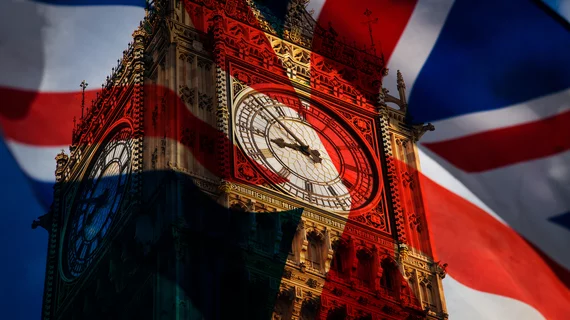Radiologists call for government action amid glaring deficiencies across UK emergency imaging
Underfunding and a lack of resources have led to significant deficiencies when imaging severely injured patients in trauma centers throughout the UK’s health system. The Royal College of Radiologists has called on the government to take action.
The revelations, included in an audit conducted by the college published Dec. 19 in Clinical Radiology, underscores the need for “substantial, focused and sustained” investment in imaging and cancer care throughout the National Health Service (NHS), RCR President Jeanette Dickson wrote in a letter sent to recently elected Prime Minister Boris Johnson.
“You have the power and the opportunity to give patients a sustainably funded, properly equipped NHS, with imaging and cancer services fit to provide 21st century care,” she underscored in the Dec. 19 letter.
Trauma kills nearly 16,000 people in the UK each year, and imaging is a central part of lowering that statistic. Prompt CT scanning and quick reporting are also an integral part of that process, wrote lead author of the study R. Greenhalgh, with London North West University Healthcare NHS Trust, and colleagues.
Both the RCR and NHS have established standards for radiological management of patients sent to major trauma centers and networked trauma units. A 2015 NHS England Peer Review, however, found that many sites were not performing up to these standards, with concerns surrounding delays in CT reporting, availability of the modality and problems with image transferring.
To conduct its current audit, the RCR sent out a two-part questionnaire to all RCR audit leads in radiology departments with an emergency department. The first section revolved around the radiology department’s configuration, number of patients scanned and major trauma service layout. The second asked for reporting times for 30 patients scanned from Nov. 30, 2016, until May 7, 2017.
Forty-five percent of departments responded. A total of 16 were from major trauma centers, 52 from trauma units and 17 from other hospitals with an ED. In total, the audit gathered data from 2,161 scans. The results found:
- A minority (36%) of scans were completed during working hours, while 63% were done after hours.
- A mere 11% of images had a documented primary survey report, and of those, 22% were unavailable to a clinician after 20 minutes.
- Most of the final imaging reports were completed within 1 hour of scans (48%) and a quarter were done within 2 hours.
“From the data collected in this audit, the standards set out by the RCR and National Institute for Health and Care Excellence guidelines for imaging of the seriously injured patients in the UK are not being met, due to a combination of infrastructure and human factors,” the authors wrote.
Dickson echoed this sentiment in her letter, writing that patient safety is in jeopardy due to “short-staffing across imaging and interventional radiology teams.” She urged the Prime Minister to focus on five dedicated areas:
1. More staff
2. Improved technical equipment
3. Up-to-date facilities with more space
4. Enhanced IT
5. A commitment that the NHS will benefit from Brexit.
“We urge you not to squander that chance, and look forward to working with you and advising partners across the health service to ensure that every future patient gets the rapid, effective diagnoses and treatment they deserve,” Dickson concluded in her letter to the Prime Minister.

